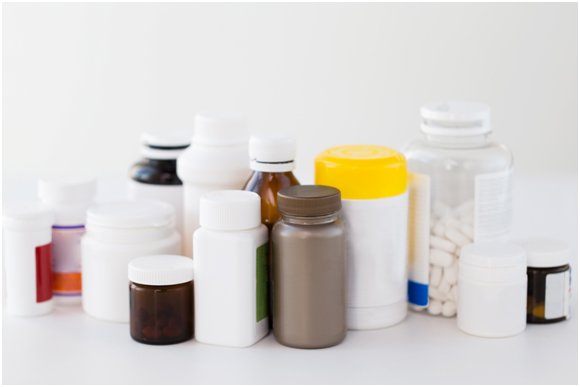Q: How should I get rid of my old and expired medicines? I don’t want to just flush them down the toilet into the water supply.
Nearly one-third of medicines sold to Washington State households go unused every year. That’s about 33 million containers of pills, just in Washington State. Yikes!
Take Back Your Meds, a group of over 270 health organizations, law enforcement, local governments, and environmental groups committed to helping people dispose of unwanted medicines.
Keeping unwanted and outdated prescription medicines around your house invites abuse and theft. Home intruders will seek prescription bottles of pain medicines sitting on countertops or stacked up in medicine cabinets, not just flat-screen televisions and laptops.
Removing medicines that are outdated or you no longer need helps keep habit-forming drugs from entering the lives of your children, grandchildren, or their friends.
One of the safest ways to dispose of your expired, unused or unwanted medicines is to take them to a site participating in a take-back program.
The United States Drug Enforcement Administration (DEA) began hosting national prescription drug take-back events starting in September 2010. By partnering with local law enforcement agencies, these events gave the public another alternative to disposing of their medicines besides putting them in the trash or flushing them down the toilet. At participating sites, you can bring your unwanted prescription medication for safe, free disposal, no questions asked.
The DEA sponsored their 18th Annual National Take Back Day on October 26, 2019, where 882,919 lb (441 tons) of unused prescription drugs were collected from 6,174 collection sites nationwide.
Local take-back events and year-round drop-off locations to dispose of leftover or unwanted medicines safely are expanding in most states. On March 22, 2018, Washington State Governor Inslee signed into law the Secure Drug Take-Back Act, the nation’s first statewide comprehensive plan for safe and secure medicine disposal by individuals.
The Secure Drug Take-Back Act established a comprehensive statewide system for year-round access to convenient drop off sites across the state, including retail or hospital/clinic-based pharmacies and police agencies volunteering to host a secure drug drop off box.
Washington State’s Take-Back Act started as a pilot program in King and Snohomish counties called MED-project (MED stands for Medication Education & Disposal). MED-project placed drug-collection boxes in retail and clinic pharmacies as well as in community centers and public libraries. With the Secure Drug Take-Back Act, lawmakers expanded MED-project into a statewide system entirely funded by the prescription drug industry.
What if you can’t get to a take-back site near you?
The FDA recommends you remove any potent pain medicines from their original containers and flushthem down a sink or toilet. This includes any pain pills containing drugs like Vicodin® or hydrocodone, oxycodone, and patches containing fentanyl or Duragesic®.
Why flush them?
According to the FDA, it’s too dangerous to leave these medicines in a trash container. Even part of a pill or a used patch of one of these powerful pain relievers can be lethal to a pet or small child.
Non-narcotic prescription medicines can be safely disposed of in the trash if you prepare them properly.
First, remove the pills or capsules from their bottles or boxes.
Second, mix them with something unappealing like kitty litter, coffee grounds, sawdust, or even dirt.
Third, place the mixture into a leak-proof container like a sturdy zip-lock bag. Your unwanted pills are now ready to add to your trash container.
Before putting empty prescription bottles into the trash, protect your privacy by marking out any identifying information such as your name, prescription number, and drug name with a permanent marker like a Sharpie®. Sometimes you can just peel the label off and crumple it up.
Here Are 4 Tips on Safely Disposing of Unwanted or Expired Medicines:
- Take them to aTake-Back location or event.
You can take them to a drop-off location or event near you. Many locally-owned pharmacies, hospital-associated pharmacies, and sheriff offices now offer secure drug collection boxes for public use year-round.
Due to the COVID-19 health crisis, the National Take Back Day Initiative (NTBI) has been postponed.
- Flush potent pain medicines.
If you can’t get to a take-back location or event, you should still get unwanted potent pain medicines out of your medicine cabinet. Remove any potent pain medicines such as hydrocodone, oxycodone, OxyContin®, or fentanyl patches and flush them down a toilet or sink.
- Disguisediscarded pills in kitty litter or used coffee grounds.
Mix your non-narcotic prescription pills, vitamins, and supplements with kitty litter, coffee grounds, or even dirt to disguise them before placing them into your trash. Use a plastic container with a secure lid or a heavy plastic zip-lock bagto prevent leakage.
- Protect your privacy.
Always remove or mark out any personal information and drug names before putting any prescription bottles or boxes into your trash or drug collection box.


